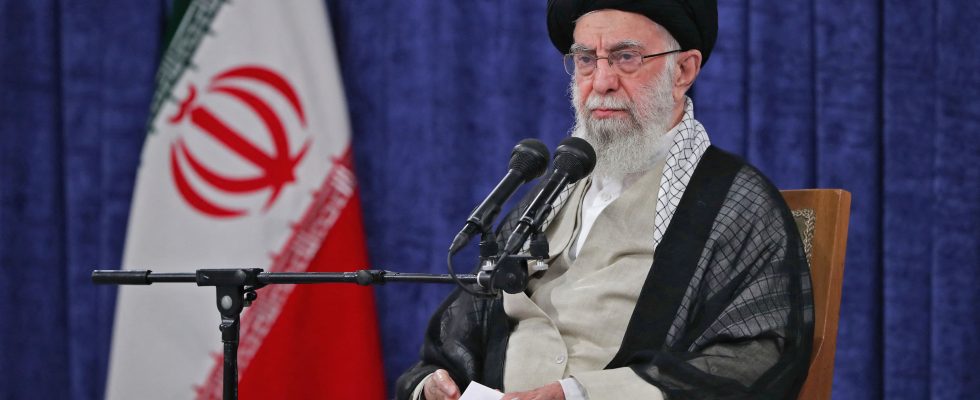Eighteen months of diplomatic inaction. But on Monday June 4, the Europeans decided, despite American reluctance, to submit a resolution condemning Iran’s nuclear escalation to the IAEA Board of Governors, which opened in Vienna. “The text was formally tabled” in the evening, a diplomatic source told AFP, with a second confirming the information.
To justify this first resolution since November 2022, London, Paris and Berlin (E3) invoked “the urgency to react to the seriousness of the situation”, according to diplomats. Because if Tehran denies wanting to acquire the bomb, its program continues to gain momentum.
Uranium at the 60% level
According to the International Atomic Energy Agency, it is the only country not equipped with atomic weapons to enrich uranium to the level of 60% and to accumulate ever-increasing stocks. This level is close to the 90% needed to make a bomb and is well above the permitted ceiling of 3.67% – equivalent to what is used for electricity generation.
On the first day of the meeting, the director general of the UN body, Rafael Grossi, reiterated his “concerns”, citing “gaps” in the monitoring of nuclear activities due to the strong restriction on inspections since 2021.
He also deemed “unacceptable” the recent public statements by officials in Iran on a possible evolution of the nuclear doctrine towards an assumed military vocation.
Washington fears new geopolitical tensions
During the last meeting in March, the E3 countries prepared a text before giving up for lack of support from Washington. If officially the United States denies slowing down the efforts of its European allies, they fear that such action would inflame current geopolitical tensions in the Middle East, especially in the run-up to the November presidential election.
A policy which is no longer tenable in view of the escalation, estimate the same diplomatic sources, adding that “the American position could evolve” between now and the vote scheduled for later in the week within the Council of 35 member countries. Visiting Iran at the beginning of May, Rafael Grossi returned empty-handed, they point out.
Meanwhile, the death of President Ebrahim Raïssi, killed in a helicopter accident, put discussions on hold. Refuting “any tactics” on the part of Tehran, the head of the IAEA said he was “ready to sit down with the new authorities” after the early elections of June 28.
But the Europeans want to increase the pressure without delay. Of symbolic significance at this stage, the resolution addresses all the points of contention. First, the presence of unexplained traces of uranium on two undeclared sites. “It is essential and urgent” that Tehran provides “technically credible” reasons, insists the confidential text consulted by AFP. On this subject, “a complete report” could be requested from Rafael Grossi. Iran must also “reverse the withdrawal of accreditation” of some of its most experienced inspectors, and reconnect surveillance cameras “without delay”.
“Get back in the game”
The Islamic Republic has gradually freed itself from the commitments made within the framework of the 2015 international agreement concluded with the United States, China, Russia, France, Germany and the United Kingdom. This pact known by the acronym JCPOA was supposed to regulate its atomic activities in exchange for a lifting of international sanctions. But it was shattered after the American withdrawal decided in 2018 by then-president Donald Trump. Discussions in Vienna to revive it failed in the summer of 2022.
Through this initiative, the Europeans “show that they are getting back in the game” and “are not fooled” by Iranian intentions, comments to AFP Héloïse Fayet, researcher at the Center for Security Studies at the French Institute of international relations (Ifri).
Iran has already warned: “if some misguided European countries adopt a hostile position […]they will face a serious and effective response from our country,” wrote Admiral Ali Shamkhani, political advisor to Supreme Leader Ali Khamenei, on Saturday in a message on X. For Russia, which has moved closer to Iran over the past two years, this “anti-Iranian resolution […] can only make the situation worse,” warned its ambassador to international organizations in Vienna, Mikhail Ulyanov.
